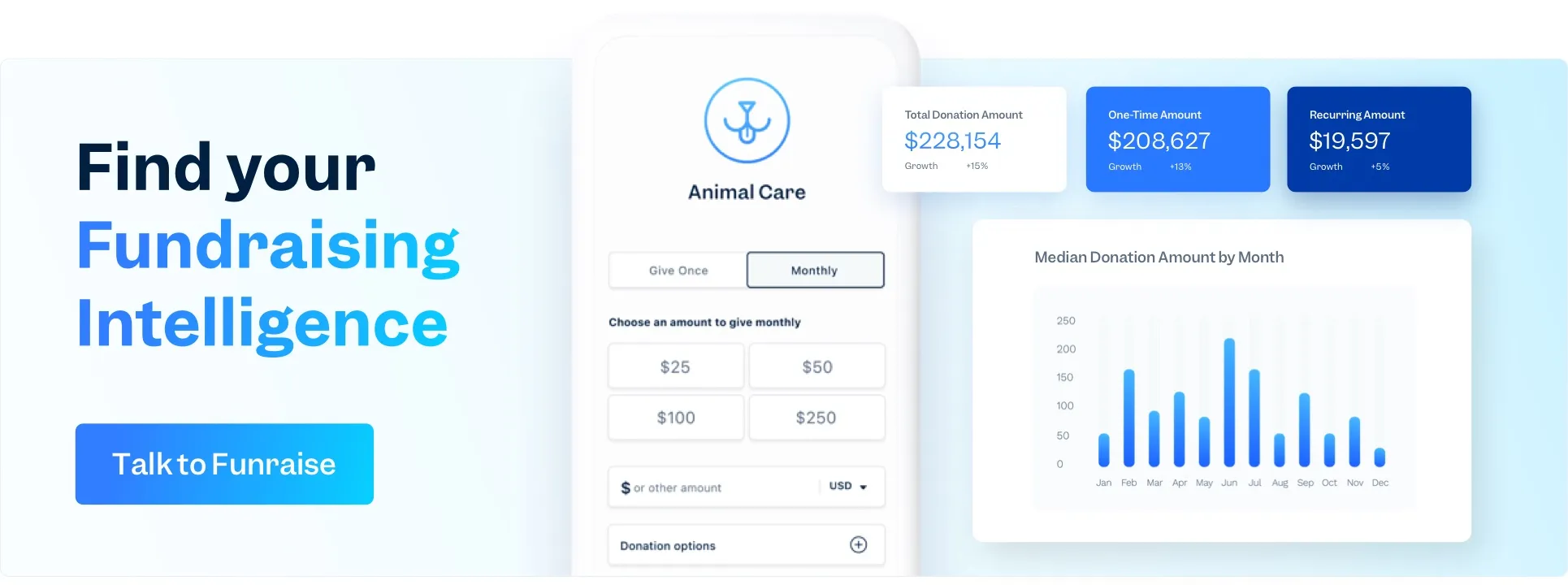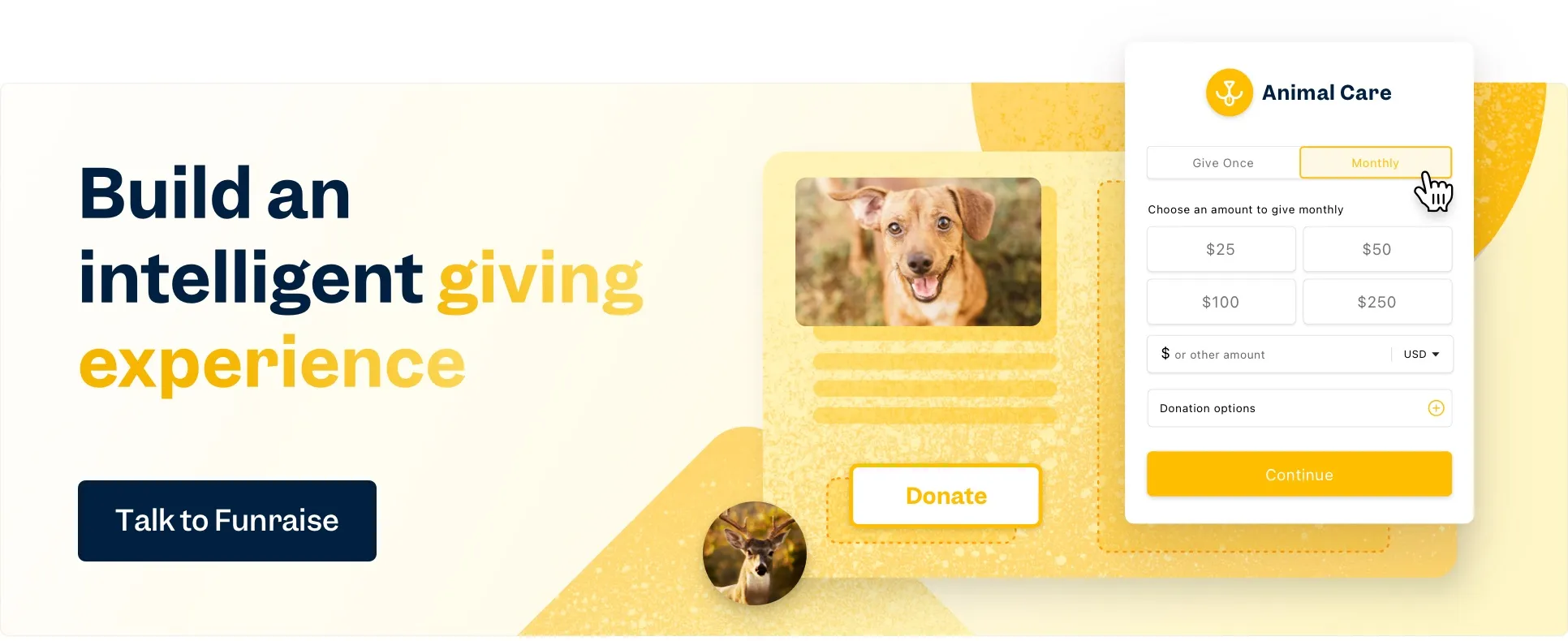There are well over 1.5 million registered nonprofits in the US alone—and that number’s only growing. How do you differentiate yourself in such a crowded market? Baby, it’s all about brand. In case you hadn’t heard, your brand is what differentiates you from all the other orgs out there. It’s your personality, your essence—all of the impressions you make on all of the people who interact with you online, in print, or in person. And because of that, it’s one of a kind. So, how does that special unicorn stay special when you introduce AI into the equation? We have some ideas.
What do we mean by “staying on brand”?
Just like every person has their own way of talking, dressing, and presenting themselves to the world, so does every organization. And that, nonprofiteer, is your nonprofit’s brand. Your brand ensures that donors recognize and connect with you, that your community trusts you, and that you have a little something that pops. By staying on brand, you ensure that every material you print, letter you write, Instagram story you post, and speech you make is definitively, consistently you.
The problem with AI and brand
Picture it: You have a strong brand, a loyal following, and a great team. Still, you’re short on resources. Then, AI enters the scene, and it feels like a godsend. Suddenly, your new robot colleague is summarizing lengthy papers, writing catchy jingles, drawing mood boards, and outlining articles. But, when you try to take it to the next level, there’s something off. Ultimately, AI content creators lack the nuance to create like a person—drawing out those small connections that bring us together or dropping a random joke that, for some reason, makes us chuckle. And because they can’t think outside the computer screen, everything they write sounds kinda-sorta the same.
Your brand, on the other hand, is all about what differentiates you from everyone else out there. So, if your voice is friendly, casual, and genuine, and suddenly a long-time donor gets a campaign update from you that’s formal and dramatic, they’re going to be pretty put off. They want a consistent experience, dang it, and now they’re all confused! And that’s why a lot of the content AI creates is good content-wise but not great brand-wise.
Now you know the problem. But what’s the solution? While AI content always requires a human set of eyes behind it (at least for now), there are ways you can push the technology to be more on brand.
Tips for keeping AI on brand
While all AI content generators have their own specializations and quirks, we have some general tips and tricks to get better results.
- Know your brand
- Start with a good prompt
- Do a lot of iterating
- Give AI something to work with
- Provide feedback
- Offer AI an example
- Use a purpose-built tool
- Don't forget about the human touch
First, you need to…
Know your brand
You can’t expect AI to stay on brand if you don’t know your own brand first. That starts with a clear mission, vision, values, and then a set of guidelines around voice, tone, style, and visuals. If you don’t have those guidelines in place, step away from the content. Instead, have AI help you generate a jumping-off point for your brand, determining your target audience, brand proposition, etc. Then, work with a brand strategist (or at least a writer) to fill in the details.
Start with a good prompt
With brand in hand, you’re ready to generate content. And writing good AI material that meets your nonprofit’s needs starts with a good prompt. Just like you carefully craft your Google search to find exactly what you’re looking for (make sure “oat milk” is in quotation marks!), you need to write a meticulous prompt to get strong results from the AI.
Need some inspiration to start off your prompts? Here are a few AI prompts, templates, and examples to help you make the leap.
Then, you can improve things by…
Iterating (a lot)
Getting on-brand content from AI requires generating a lot of different responses. Once you’ve entered your first prompt and have a result, consider what about that response was lacking. Was it too detached? Rewrite the prompt and urge the AI to “write in a playful tone and use contractions.” Oof, did that create too many puns? Try “write in a warmer tone but don’t use plays on words.” Keep tweaking your input until the output sounds like … well, you. The same is true for visual content creators. Every word matters to your AI colleague.
These iterations will help you just as much as they help your AI. As you learn which prompts work and which don’t, you’ll be able to cut down the time needed to achieve an on-brand result.
Giving it something to work with
You can copy and paste previously written content into an AI content generator as a jumping-off point, asking it to write future content using the previous content as a guide. To make sure it’s accurate, first ask, “Can you describe the brand voice for the following content?” If the answer sounds about right, forge ahead. If not, give it more content to work with.
Providing feedback
Let the AI know what it did wrong. We promise it won’t be offended! The more feedback it gets, the better it will perform in the future.
You can also try…
Asking AI to write or draw “in the style of”
If there’s another publication, well-known organization, or famous artist whose style you like, ask AI to emulate their style. For example, your prompt could be, “In the style of the New York Times, write a summary of our recent fundraising event. We raised $135,000, which was $10,000 over our goal, and had 250 guests. The theme was ‘Rise with Us.’” Again, this is not a replacement for having your own brand voice, but it can provide a good starting point.
Using a brand-focused AI
Not all AI tools are created equal, and there are several AI content creators on the market that specialize in marketing and brand. Again, all these tools require you to know your brand first—and know it well. But once you’ve done the legwork, they’ll run with it, producing oodles of (mostly) on-brand content. They’re especially useful for things like standardizing capitalization and phrasing, sticking with a consistent color palette, and avoiding off-brand word choices.
Finally, always…
Have a good human on hand
In the end, whatever AI content generator you choose and however much you train it, you need a human writer/designer or two to ensure your content is your content. AI can show strokes of genius now and again. It can save you tons of time by churning out copy and images, and it can help get the juices flowing with ideas aplenty. But more than that, it’s a tool to help you create your best work. Before anything goes out into the larger world, a human who knows and loves your brand should review it.
More tricks to get AI on board with your brand
Now, you know how to nudge AI to create content that looks and sounds more like your nonprofit and less like a well-read droid. But in addition to creating content to support your brand, AI content creators can also help improve your overall brand. Check it out.
Up your accessibility
The best brands are accessible to as many people as possible. And AI can help you get there. Whether it’s generating video captions or creating alt-text, AI can open up your content to a wider audience, which is good for supporters and good for your brand.
Understand your data
In an ideal world, we’d constantly ask donors how we’re doing, how we can improve, and what they need. But time is a finite resource, and nonprofits are always short on it. Enter AI! AI can help you make sense of your data and even provide insights and recommendations. And with data, you can create a better brand—one that meets your donor’s needs and boosts trust.
Think of all the work that goes into your annual report: collecting and analyzing the data, visualizing the data, turning the data into a story, adding visuals, translating it all into an accessible, shareable, celebrate-able format. AI can help you do all that and deliver a branded annual report.
Build a personalized journey
The most effective nonprofit brands offer a personalized donor experience, and AI can certainly help with that. Whether it’s offering tailored recommendations or directing donors to relevant opportunities, AI can analyze donor behavior to ensure everyone has a unique experience.
Inspire your creatives
When it comes to vital brand elements like creating a new logo or crafting a mission statement, you want a person behind the computer screen. That being said, AI is still a useful tool. It can analyze designs and whip up some new ideas, which a designer can then perfect. Think of it as using a boxed cake mix—sure, you can get a decent result using it as is, but when a real baker steps in and adds a few more ingredients (mostly butter, TBH), you can achieve perfection.
Your brand is personal, but that doesn’t mean AI can’t help make the process a little bit easier. So go ahead and embrace the power of AI, but always keep a human in the loop to make sure your brand shines bright like a diamond (and your content references Rihanna lyrics).
AI and brand: Key takeaways
- "Staying on brand" refers to consistently maintaining the unique identity, voice, and visuals of your nonprofit, ensuring that every piece of content reflects your brand's essence.
- AI content creators can be helpful but often lack the nuance and creativity to produce content that aligns perfectly with your brand.
- Tips for keeping AI on brand include knowing your brand well, crafting precise prompts, iterating to refine the output, providing feedback, and leveraging AI to emulate the style of other publications or artists.
- It's crucial to have a human touch in reviewing and finalizing the content generated by AI to ensure it truly represents your brand.































.webp)
.webp)











.webp)
.webp)

.webp)
.webp)
.webp)




